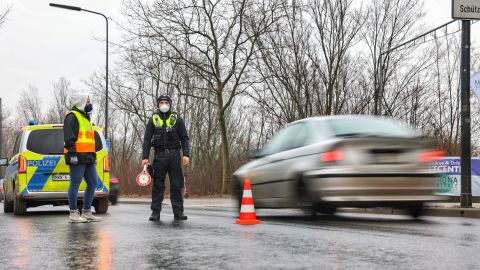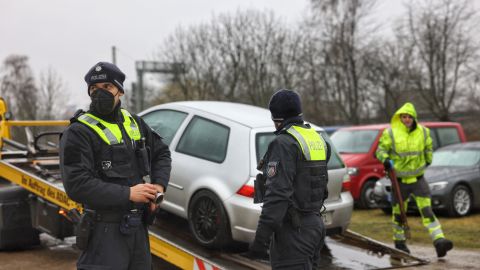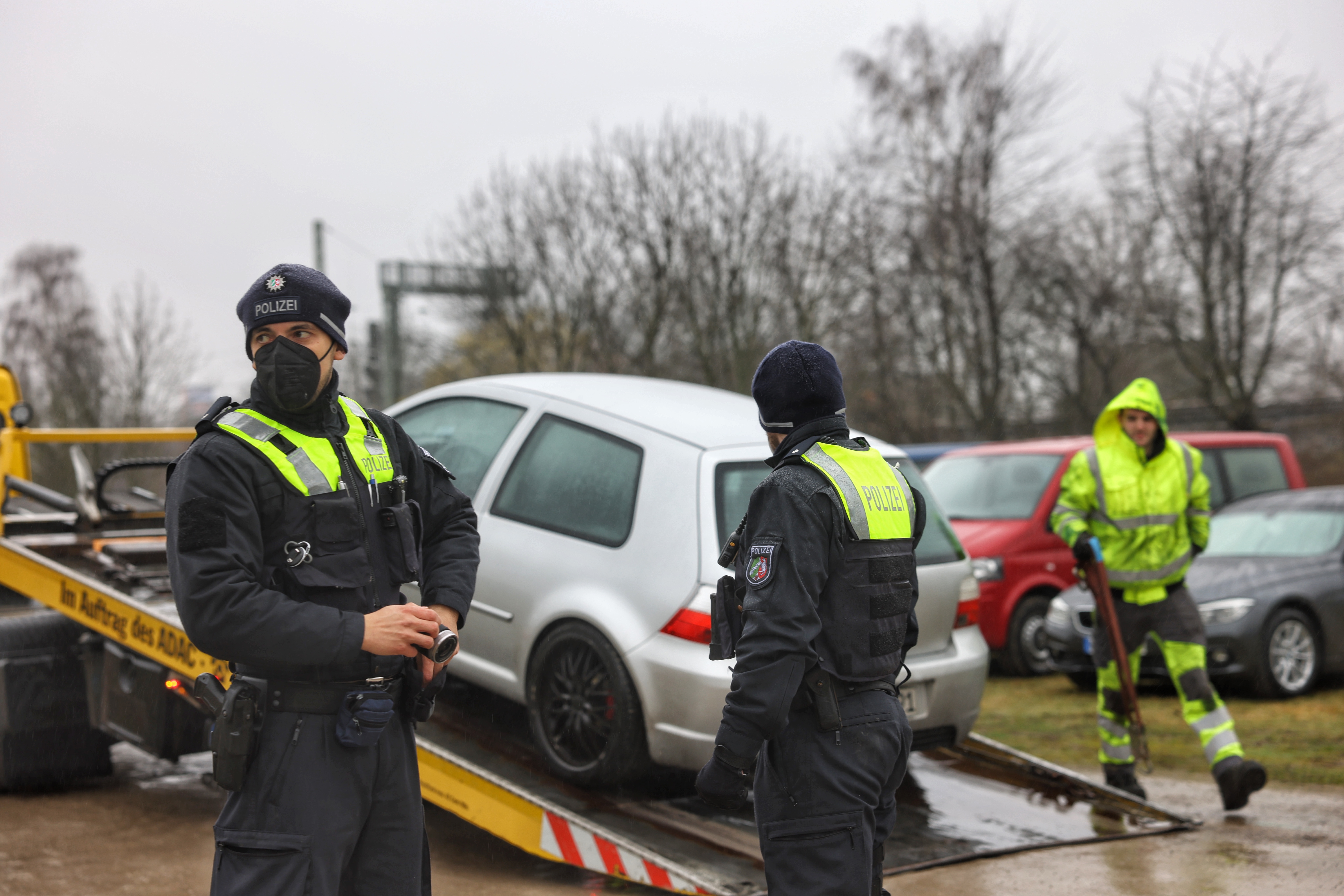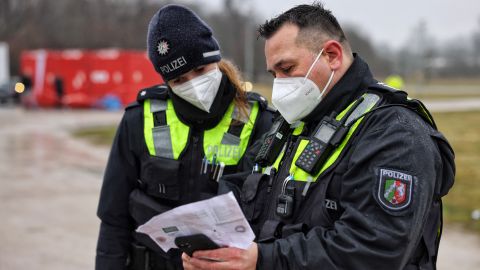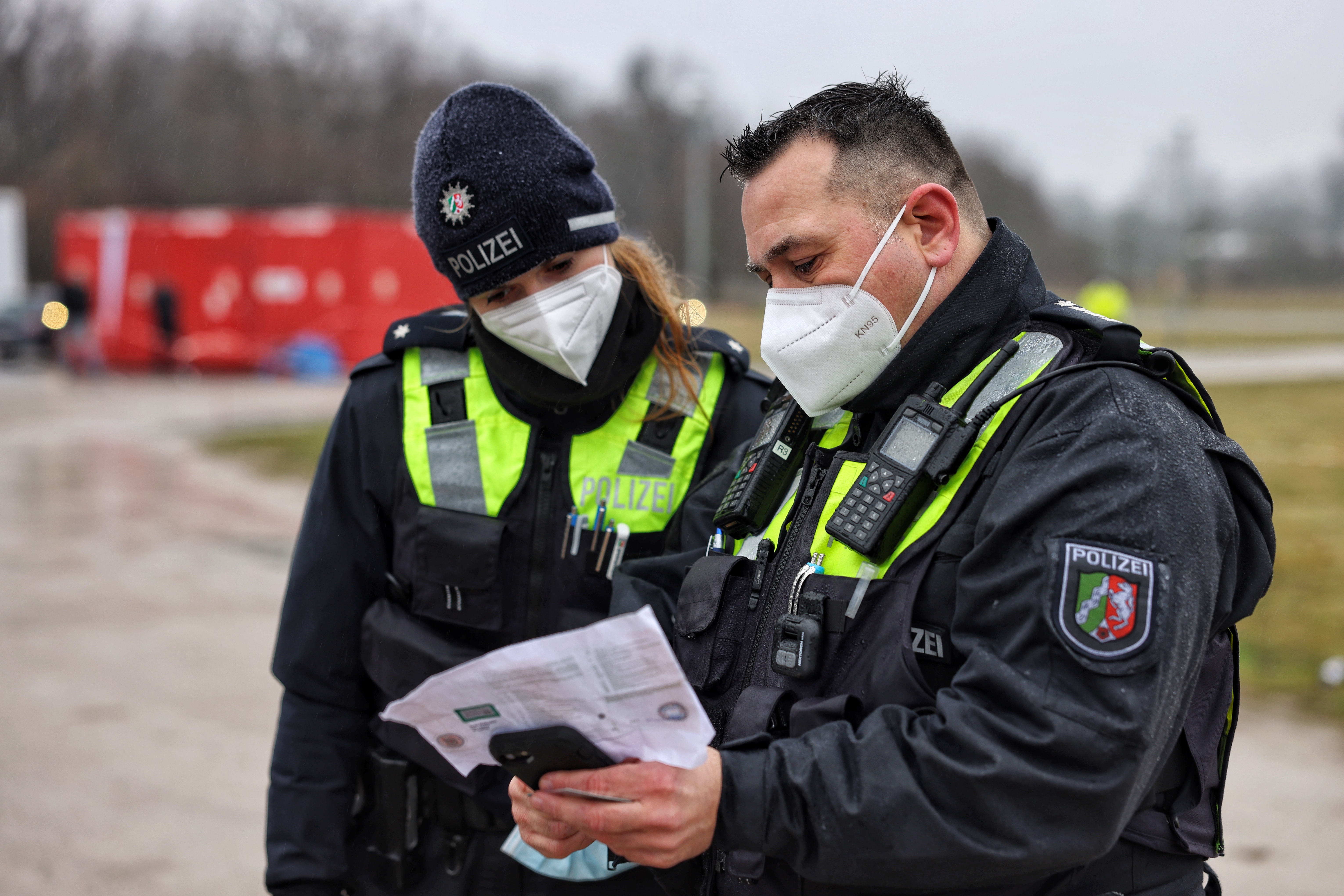Thursday morning - rain - a major traffic stop in Düsseldorf. Young police officers are checking vehicles that have just been pulled over by a traffic stop and directed to a parking lot. The situation described is a large-scale traffic check carried out by the State Office for Training, Further Education and Personnel Matters (LAFP) of the NRW police in cooperation with the traffic service of Düsseldorf Police Headquarters (PP).
The motivated colleagues who check vehicles and their occupants are part of the special "Specialists to Police Officers" program and are currently carrying out their final exercise here.
100 students are part of the "Specialists to Police Officers" program
Until 2023, the Ministry of the Interior of North Rhine-Westphalia will provide special entry opportunities for 100 students with suitable pre-qualifications each year. 70 of them will be deployed directly in crime prevention and 30 in the Traffic Directorate.
The prerequisite for participation in the program is a previously completed degree or vocational training. This is the police department's response to the current challenges posed by the increasingly high demands placed on professional task management. "The police officer of the future" will increasingly have to be a specialist in selected areas.
Normally, young police commissioners spend at least one year on guard duty after completing their three-year course and then - if this is possible in the authority - three years in the riot police. Only then is it possible to specialize. This is different for trainee inspectors who apply for the "Specialists to police officers" program based on their professional background.
From studies directly into the Traffic Directorate
Dirk Niewerth, 28, and René Klötzer, 26, also opted for this route. During their studies, both became aware of the program due to their previous technical experience. Niewerth completed an apprenticeship in surveying and drawing before the dual study program, while Klötzer trained as a mechatronics engineer. After completing their training, both decided to become police officers. Now, one year after their bachelor's degree and after twelve weeks of many specialist seminars, they can work directly in traffic services.
"Thanks to the many different seminars, I feel very well prepared for my work in the special traffic group of the Dülmen traffic service and am looking forward to working with my experienced colleagues," says Niewerth.
During the four-week introductory training course and two further four-week seminar blocks, the prospective traffic specialists learned everything about the tasks and activities of the Traffic Directorate, process production and many specialist topics such as "drugs in road traffic" and "document forgery".
"What we have learned over the past year is really worth its weight in gold. I feel very confident and my colleagues in the traffic service also support us with their experience," adds Klötzer, who works in the traffic service at Dortmund police station.
Program is seen as a success
During the final exercise, the two also proved that they could put what they had learned into practice. A driver who was driving without a license, under the influence of narcotics, with a stolen license plate and without insurance cover was professionally checked and dealt with by the two
. The program is an absolute success for the two young inspectors, who continue to see their future in the traffic service.
